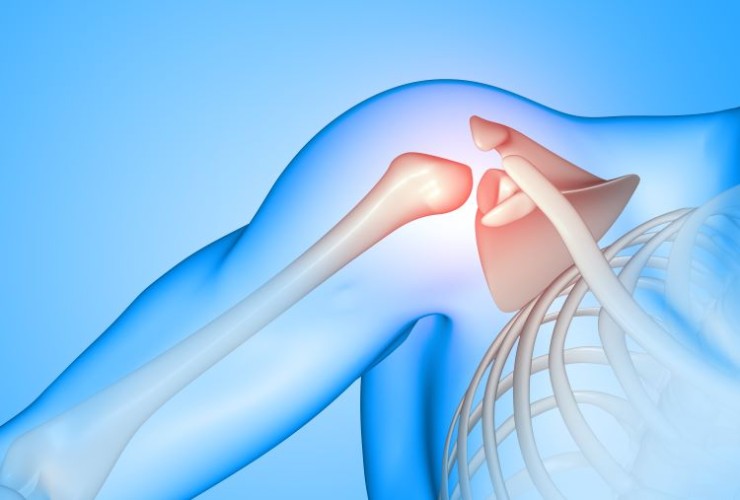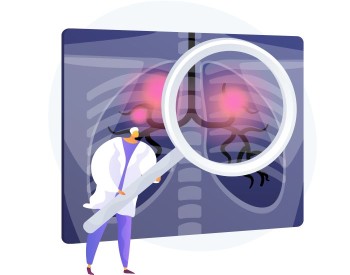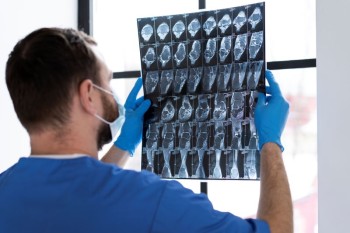
The 3D CT Shoulder Scan is crucial for assessing the shoulder joint, bones, and soft tissues.
3D CT Shoulder Scan in India with Cost
3D CT Shoulder Scan in
Detail
Introduction
A 3D CT Shoulder Scan is an advanced diagnostic imaging procedure that provides detailed three-dimensional images of the shoulder joint and surrounding structures. In this article, we explore the specifics of this imaging technique, its purposes, and how it aids in diagnosing and managing various conditions related to the shoulder.
Purpose and Significance of 3D CT Shoulder Scan
The 3D CT Shoulder Scan is crucial for assessing the shoulder joint, bones, and soft tissues. It is commonly used to identify abnormalities such as fractures, dislocations, rotator cuff tears, and other conditions affecting the shoulder.
When is a 3D CT Shoulder Scan Recommended?
This imaging procedure is recommended when a more detailed and comprehensive evaluation of the shoulder is necessary. It is often employed for cases of shoulder pain, suspected injuries, arthritis, and pre-surgical planning for orthopedic procedures related to the shoulder.
Preparation for 3D CT Shoulder Scan
Preparing for a 3D CT Shoulder Scan requires minimal effort. Patients should remove any metal objects or jewelry from the shoulder area, and it's essential to inform the healthcare provider about any existing health conditions or medications.
Procedure of 3D CT Shoulder Scan
During the procedure, patients may be positioned on a specialized table that moves through the CT scanner. The scanner captures detailed cross-sectional images from various angles, creating a three-dimensional representation of the shoulder.
Benefits and Risks
The 3D CT Shoulder Scan offers high-resolution images, providing an accurate assessment of various conditions affecting the shoulder. The benefits often outweigh the risks, as the procedure is generally considered safe. The exposure to radiation is minimal during the scan.
Interpreting 3D CT Shoulder Scan Results
Expertise is crucial in interpreting the results of a 3D CT Shoulder Scan. Radiologists analyze the detailed three-dimensional images to identify abnormalities, such as fractures, dislocations, soft tissue injuries, and other conditions affecting the shoulder. The information obtained guides treatment decisions.
Conditions Diagnosed Through 3D CT Shoulder Scan
The 3D CT Shoulder Scan is effective in diagnosing a range of conditions, including shoulder fractures, dislocations, rotator cuff tears, and abnormalities in the shoulder joint. The detailed three-dimensional images allow for precise identification and characterization of these issues.
Alternatives to 3D CT Shoulder Scan
While the 3D CT Shoulder Scan is a powerful diagnostic tool, alternative imaging methods like MRI or traditional X-rays may be considered based on the specific clinical scenario. Each method has its strengths and limitations, and the choice depends on the information needed for an accurate diagnosis.
Conclusion
In conclusion, the 3D CT Shoulder Scan is a valuable diagnostic tool for assessing the shoulder and identifying various conditions affecting this essential joint. The detailed three-dimensional images it provides play a crucial role in guiding healthcare professionals toward accurate diagnosis and appropriate treatment plans.
Frequently Asked Questions About 3D CT Shoulder Scan
1. What is a 3D CT Shoulder Scan?
A 3D CT Shoulder Scan is an advanced imaging procedure that provides detailed three-dimensional images of the shoulder joint and surrounding structures, aiding in the assessment and diagnosis of various conditions related to the shoulder.
2. How long does the procedure take?
The duration of a 3D CT Shoulder Scan is relatively short, typically taking around 15 to 30 minutes, making it a quick and efficient imaging technique.
3. Is there any discomfort during the procedure?
The procedure is generally well-tolerated, and there is no discomfort associated with the scan itself. Patients may need to remain still during the procedure to ensure clear three-dimensional images.
4. Are there risks associated with 3D CT Shoulder Scan?
3D CT Shoulder Scan is considered safe, with minimal risks. The exposure to radiation is minimal, and the benefits often outweigh the risks, especially considering the detailed three-dimensional information it provides.
5. Can individuals with shoulder implants undergo this scan?
In many cases, individuals with shoulder implants can undergo a 3D CT Shoulder Scan. However, it's crucial to inform the healthcare provider about any metal implants or devices for appropriate considerations.
6. Can a 3D CT Shoulder Scan detect shoulder arthritis?
Yes, a 3D CT Shoulder Scan is effective in detecting shoulder arthritis by providing detailed three-dimensional images of the shoulder joint and surrounding structures. This allows healthcare professionals to assess the extent of arthritis and plan appropriate treatment.
7. How often is a 3D CT Shoulder Scan recommended for monitoring chronic shoulder conditions?
The frequency of 3D CT Shoulder Scans for monitoring chronic shoulder conditions varies based on the specific diagnosis and treatment plan. Your healthcare provider will determine the appropriate schedule for follow-up scans based on your individual case.
8. Is contrast dye used during a 3D CT Shoulder Scan?
In most cases, contrast dye is not required for a standard 3D CT Shoulder Scan. However, for specific situations where enhanced imaging is necessary, your healthcare provider may recommend the use of contrast dye. This will be discussed with you before the procedure.
9. Can individuals with claustrophobia undergo a 3D CT Shoulder Scan?
3D CT Shoulder Scans are open and generally well-tolerated, minimizing the likelihood of triggering claustrophobia. However, if you have concerns, it's essential to discuss them with your healthcare provider. They can provide guidance and offer solutions to help you feel more comfortable during the procedure.
10. Are there specific age restrictions for individuals undergoing a 3D CT Shoulder Scan?
There are typically no strict age restrictions for individuals undergoing a 3D CT Shoulder Scan. The decision is based on medical necessity and the specific condition being investigated. Both adults and children may undergo this scan when recommended by their healthcare provider.
Feel free to consult with your healthcare provider for more personalized information and guidance regarding a 3D CT Shoulder Scan.
(0)
Login to continue



